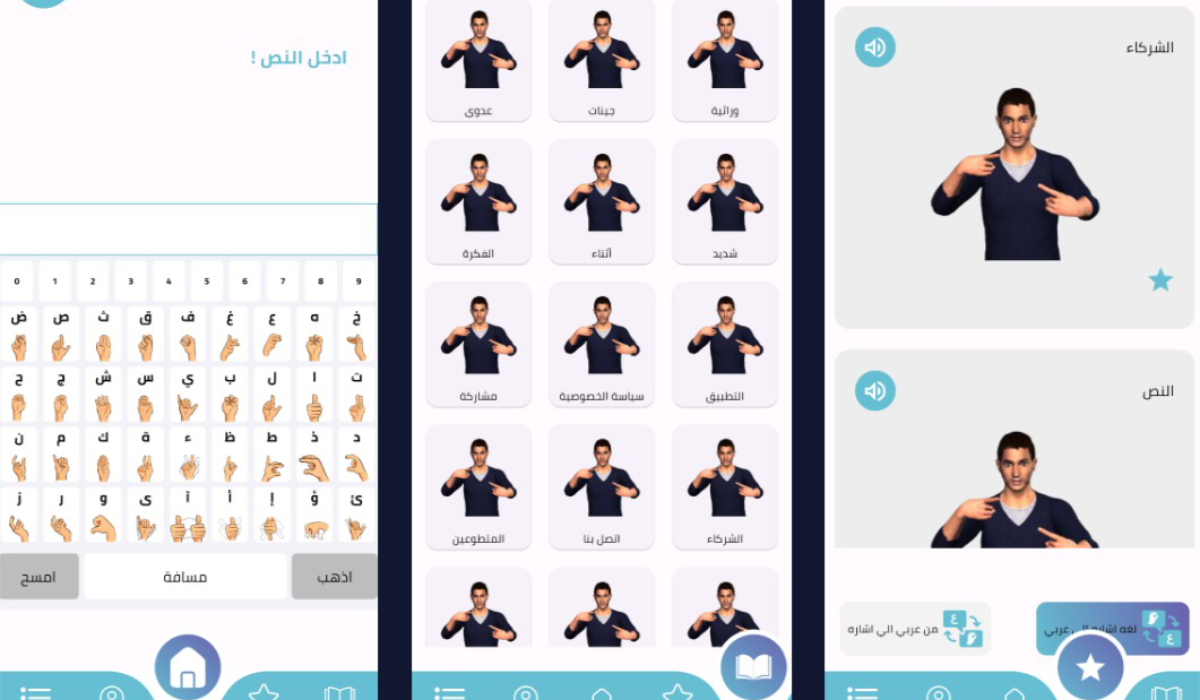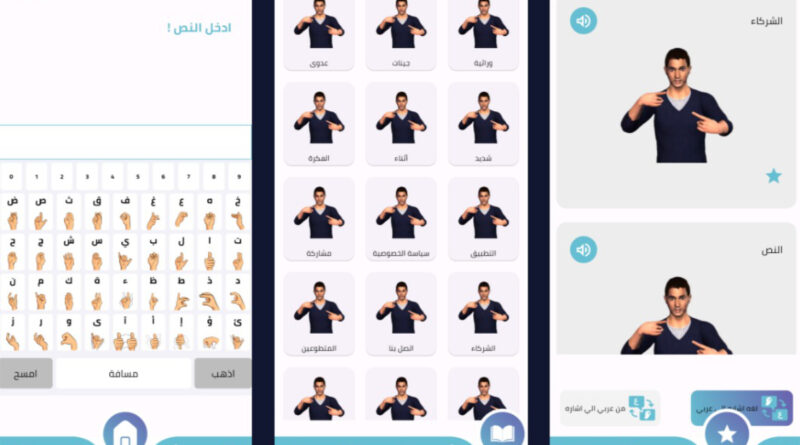World Mental Health Day: Raising awareness is key to reducing stigma, experts say
RIYADH: The developer of an Arabic sign language translation tool has spoken about how he aims to improve accessibility for deaf people, helping them connect with society.
Reem Turky, the founder of Tawaasuly, has created an important tool for deaf people in the Arabic-speaking world. The device acts as a bridge between deaf and hearing people, providing two channels of communication.
Tawaasuly translates Arabic speech and text into Arabic sign language using 3D animations and translates sign language gestures into spoken or written Arabic.

By collaborating with experts in the field, the tool adapts to different types of Arabic sign language, ensuring accurate translations according to the situation. (Given)
“We aim to fulfill the vision of service providers by elevating the experience of customers with disabilities into a new era,” Turky told Arab News.
Tawaasuly facilitates communication, engages the Arab deaf community in society and enables users to live outside their families and interpreters. It also helps service-driven businesses to be recognized as innovators in customer experience while addressing environmental, social and governance issues.
Turky’s journey to create Tawaasuly was a deeply personal one. He said: “I saw the difficulties faced by my colleague, who had difficulty communicating in social and professional situations.
We use a combination of machine learning and speech-to-text recognition technologies to translate between Arabic speech and Arabic sign language.
Reem TurkeyFounder of Tawaasuly
“This experience sparked my desire to create solutions that bridge communication gaps.”
Realizing that the tools available for deaf Arabic speakers were inadequate and culturally inappropriate, he was inspired to develop Tawaasuly.
“Our mission is to empower the deaf community by providing accessible communication that promotes inclusion and understanding,” said Turky.
“We use a combination of machine learning and speech-to-text recognition technologies to translate between Arabic speech and Arabic sign language.”
By collaborating with experts in the field, the tool adapts to different types of Arabic sign language, ensuring accurate translations according to the situation.
Feedback from users has been positive. Many people have expressed gratitude for the app’s ease of use and accurate translations.
“It greatly improves their ability to communicate in a variety of settings, from education to public speaking,” Turky said.
But he said he’s had trouble trying to get people to know about the app.
“The pervasive stigma around deafness and limited awareness of the technologies available has been our biggest challenge,” he said.
The group aims to educate deaf people and companies about the benefits of the app. Its impact is measured by user feedback, social interactions and usage statistics.
Turky said: “One user shared that Tawaasuly helped him reconnect with hearing people after years of isolation.”
He hopes that in five years Tawaasuly, with further development, including languages and multilingualism, will become a communication tool for deaf people around the world who speak Arabic. He said he plans to launch a commercial version of the app to help companies better serve deaf customers.
The company is currently pursuing partnerships with startups focused on AI and speech-to-speech technology, as well as partnerships with educational institutions and disability rights NGOs.
“We prioritize sustainable practices in our operations, such as green IT and community outreach programs,” said Turky.
He believes that technology plays an important role in improving accessibility for people with disabilities.
“It can improve communication, provide access to information and create an inclusive environment for people with disabilities,” he said.
Seeing the positive impact of Tawaasuly on users’ lives has been beneficial for Turky.
“Knowing that Tawaasuly is helping to bridge communication gaps is what motivates me,” he said.
#World #Mental #Health #Day #Raising #awareness #key #reducing #stigma #experts
